In our last episode, we laid the theological foundation for a new covenant doctrine: Christ fulfilled the Law and ratified the new covenant, which opened a new way of relating to God apart from obedience to Torah. Now we will discuss a number of texts that sometimes confuse Christians into thinking the Law is still in effect today. We’ll cover Jesus’ obedience to Torah, several scriptures that imply the Torah is forever, the sabbath’s association with creation, and a number of prophecies that mention keeping aspects of the Law in the kingdom. Although, I realize these are not all of the texts and strategies that Torah-observant Christians use to make their case, these are some of the significant ones.
—— Notes ——
State the Doctrine Simply
Because of Christ’s obedient life, atoning death, and justifying resurrection, he has opened a new way of relating to God via the new covenant. Thus, the old covenant (the Law of Moses) is obsolete for both Jews and Gentiles.
Texts that Support This Teaching
Acts 15.23-29; Rom 2.25-29; 3.21-31; 4.13-16; 6.14-15; 7.1-7; 8.1-4; 13.8-10; 1 Cor 9.20-21; 2 Cor 3.1-18; Gal 2.14, 19-21; 3.10-29; 4.21-31; 5.1-6; 5.13-25; 6.15-16; Eph 2.11-19; 3.4-6; Col 2.11-17; Heb 7.11-12, 21-22; 8.4-13; 9.11-15; 10.8-22; 12.18-29
The Example/Teaching of Jesus
Hebrews 4.15
15 For we do not have a high priest who is unable to sympathize with our weaknesses, but one who in every respect has been tempted as we are, yet without sin.
- in the context of Jesus’ life, sinless means he kept the Law
- just b/c Jesus kept the law, doesn’t mean we should continue to keep it, especially if his whole mission was to open a new way for us to relate to God
- Think of the generation that first received the Torah in the time of Moses. They were not free to continue living the old way if they wanted to relate to God through the new way Moses had delivered to them.
Numbers 15.32-36 (the guy who collected sticks on the Sabbath)
32 While the people of Israel were in the wilderness, they found a man gathering sticks on the Sabbath day. 33 And those who found him gathering sticks brought him to Moses and Aaron and to all the congregation. 34 They put him in custody, because it had not been made clear what should be done to him. 35 And the LORD said to Moses, “The man shall be put to death; all the congregation shall stone him with stones outside the camp.” 36 And all the congregation brought him outside the camp and stoned him to death with stones, as the LORD commanded Moses.Matthew 5.17-20
17 “Do not think that I have come to abolish the Law or the Prophets; I have not come to abolish them but to fulfill them. 18 For truly, I say to you, until heaven and earth pass away, not an iota, not a dot, will pass from the Law until all is accomplished. 19 Therefore whoever relaxes one of the least of these commandments and teaches others to do the same will be called least in the kingdom of heaven, but whoever does them and teaches them will be called great in the kingdom of heaven. 20 For I tell you, unless your righteousness exceeds that of the scribes and Pharisees, you will never enter the kingdom of heaven.
- booster rocket analogy of N. T. Wright
- Jesus did not abolish, but to fulfill the Law, but once he fulfilled it, a new way became available
- what is a covenant? it’s a way God has set up to relate to him
- all of Hebrews teaches that the new way is better
- he is a better mediator of the covenant than the angels (Heb 1)
- he offers better salvation (Heb 2)
- he is better than Moses as a son is better than a faithful servant (Heb 3)
- his priesthood is better than Aaron’s b/c it’s after Melchizedek’s order (Heb 7)
- his covenant is better than the old covenant b/c it has better promises (Heb 8)
- his heavenly priestly service is better than priest’s earthly service (Heb 9)
- his sacrifice is better than animal sacrifices b/c it was once for all and actually takes away sin (Heb 10)
- Zion covenant is better than the Mt. Sinai covenant b/c it is unshakeable (Heb 12)
Galatians 3.24-25
24 So then, the law was our guardian until Christ came, in order that we might be justified by faith. 25 But now that faith has come, we are no longer under a guardian,Luke 16.16-17
16 “The Law and the Prophets were until John; since then the good news of the kingdom of God is preached, and everyone forces his way into it. 17 But it is easier for heaven and earth to pass away than for one dot of the Law to become void.
- …until Jesus finished his work, nothing could invalidate the Law
Perpetual Ordinances
Exodus 29.27-28
27 And you shall consecrate the breast of the wave offering that is waved and the thigh of the priests’ portion that is contributed from the ram of ordination, from what was Aaron’s and his sons’. 28 It shall be for Aaron and his sons as a perpetual due from the people of Israel, for it is a contribution. It shall be a contribution from the people of Israel from their peace offerings, their contribution to the LORD.Exodus 40.14-15 (cp. Lev 7.34, 36, 24.9; Num 10.8; 18.8, 11, 19, 23; 19.10; 25.13)
14 You shall bring his sons also and put coats on them, 15 and anoint them, as you anointed their father, that they may serve me as priests. And their anointing shall admit them to a perpetual priesthood throughout their generations.”
- The vast majority of these “perpetual” texts relate to the Aaronic priesthood
- However, we know that Christ’s priesthood has superseded the Aaronic priesthood
Hebrews 7.11-12 (change in priesthood)
11 Now if perfection had been attainable through the Levitical priesthood (for under it the people received the law), what further need would there have been for another priest to arise after the order of Melchizedek, rather than one named after the order of Aaron? 12 For when there is a change in the priesthood, there is necessarily a change in the law as well.Hebrews 7.23-28 (Jesus’ priesthood is superior to the Aaronic priesthood)
23 The former priests were many in number, because they were prevented by death from continuing in office, 24 but he holds his priesthood permanently, because he continues forever. 25 Consequently, he is able to save to the uttermost those who draw near to God through him, since he always lives to make intercession for them. 26 For it was indeed fitting that we should have such a high priest, holy, innocent, unstained, separated from sinners, and exalted above the heavens. 27 He has no need, like those high priests, to offer sacrifices daily, first for his own sins and then for those of the people, since he did this once for all when he offered up himself. 28 For the law appoints men in their weakness as high priests, but the word of the oath, which came later than the law, appoints a Son who has been made perfect forever.
Romans 3.31
31 Do we then overthrow the law by this faith? By no means! On the contrary, we uphold the law.
- overthrow (ESV) = nullify (NASB)
- we don’t nullify the law, but we are able to relate to God apart from the law through Christ
Creation
Genesis 2.2-3
2 And on the seventh day God finished his work that he had done, and he rested on the seventh day from all his work that he had done. 3 So God blessed the seventh day and made it holy, because on it God rested from all his work that he had done in creation.
- God kept the Sabbath
- the Sabbath is prior to Moses
- if God Almighty rested on the 7th day, who do we think we are if we don’t rest?
Exodus 20.9-11
9 Six days you shall labor, and do all your work, 10 but the seventh day is a Sabbath to the LORD your God. On it you shall not do any work, you, or your son, or your daughter, your male servant, or your female servant, or your livestock, or the sojourner who is within your gates. 11 For in six days the LORD made heaven and earth, the sea, and all that is in them, and rested on the seventh day. Therefore the LORD blessed the Sabbath day and made it holy.
- the reason given for keeping the Sabbath is because God did it
- this is true; God set an example by resting and he expected Israel to imitate that
- However, we are no longer under this covenant, but under a new one where there’s more freedom
Colossians 2.16-17
16 Therefore let no one pass judgment on you in questions of food and drink, or with regard to a festival or a new moon or a Sabbath. 17 These are a shadow of the things to come, but the substance belongs to Christ.Romans 14.4-6
4 Who are you to pass judgment on the servant of another? It is before his own master that he stands or falls. And he will be upheld, for the Lord is able to make him stand. 5 One person esteems one day as better than another, while another esteems all days alike. Each one should be fully convinced in his own mind. 6 The one who observes the day, observes it in honor of the Lord. The one who eats, eats in honor of the Lord, since he gives thanks to God, while the one who abstains, abstains in honor of the Lord and gives thanks to God.
- we should take seriously the wisdom of God in establishing the sabbath as a day off from work
- if we overwork ourselves, we’ll have problems
- however, the Sabbath was never about worship; it was about rest
- in our culture many of us get the weekend off—two days of rest, a double sabbath!
Eschatological Observance
Zechariah 14.16-21
16 Then everyone who survives of all the nations that have come against Jerusalem shall go up year after year to worship the King, the LORD of hosts, and to keep the Feast of Booths. 17 And if any of the families of the earth do not go up to Jerusalem to worship the King, the LORD of hosts, there will be no rain on them. 18 And if the family of Egypt does not go up and present themselves, then on them there shall be no rain; there shall be the plague with which the LORD afflicts the nations that do not go up to keep the Feast of Booths. 19 This shall be the punishment to Egypt and the punishment to all the nations that do not go up to keep the Feast of Booths. 20 And on that day there shall be inscribed on the bells of the horses, “Holy to the LORD.” And the pots in the house of the LORD shall be as the bowls before the altar. 21 And every pot in Jerusalem and Judah shall be holy to the LORD of hosts, so that all who sacrifice may come and take of them and boil the meat of the sacrifice in them. And there shall no longer be a trader in the house of the LORD of hosts on that day.
Isaiah 56.6-7
6 “And the foreigners who join themselves to the LORD, to minister to him, to love the name of the LORD, and to be his servants, everyone who keeps the Sabbath and does not profane it, and holds fast my covenant– 7 these I will bring to my holy mountain, and make them joyful in my house of prayer; their burnt offerings and their sacrifices will be accepted on my altar; for my house shall be called a house of prayer for all peoples.”
Isaiah 66.23
23 From new moon to new moon, and from Sabbath to Sabbath, all flesh shall come to worship before me, declares the LORD.Ezekiel 40.38-39 (cp. Eze 45.13-46.15 for specific offerings )
38 There was a chamber with its door in the vestibule of the gate, where the burnt offering was to be washed. 39 And in the vestibule of the gate were two tables on either side, on which the burnt offering and the sin offering and the guilt offering were to be slaughtered.
- “The problem is easily solved if we view them as being COMMEMORATIVE rather than EFFICACIOUS. The sacrifices will be a memorial, just as communion is practiced today looking back. They will not be propitiation, or efficacious (they will have no power to redeem) but are a reminder of what took place.”[1]
[1] http://www.letusreason.org/Biblexp191.htm
—— Links ——
- Listen to the previous episode to hear why the new covenant has made the old obsolete: Theology 23 — New Covenant
- See Steve Gregg vs. Doug Batchelor debating whether or not Christians today need to keep the Sabbath
- For more on this check out these episodes
- For the textbooks, check out the New Bible Dictionary and Greg Deuble’s They Never Told Me This in Church.
- Also, listen to an interview with Deuble here.
- See other episodes in this Theology Class
- Find more Restitutio classes here
- More information about Converge 2019
- Intro music: Jazzy Frenchy by bensound.com. Licensed under Creative Commons: By Attribution 3.0 License

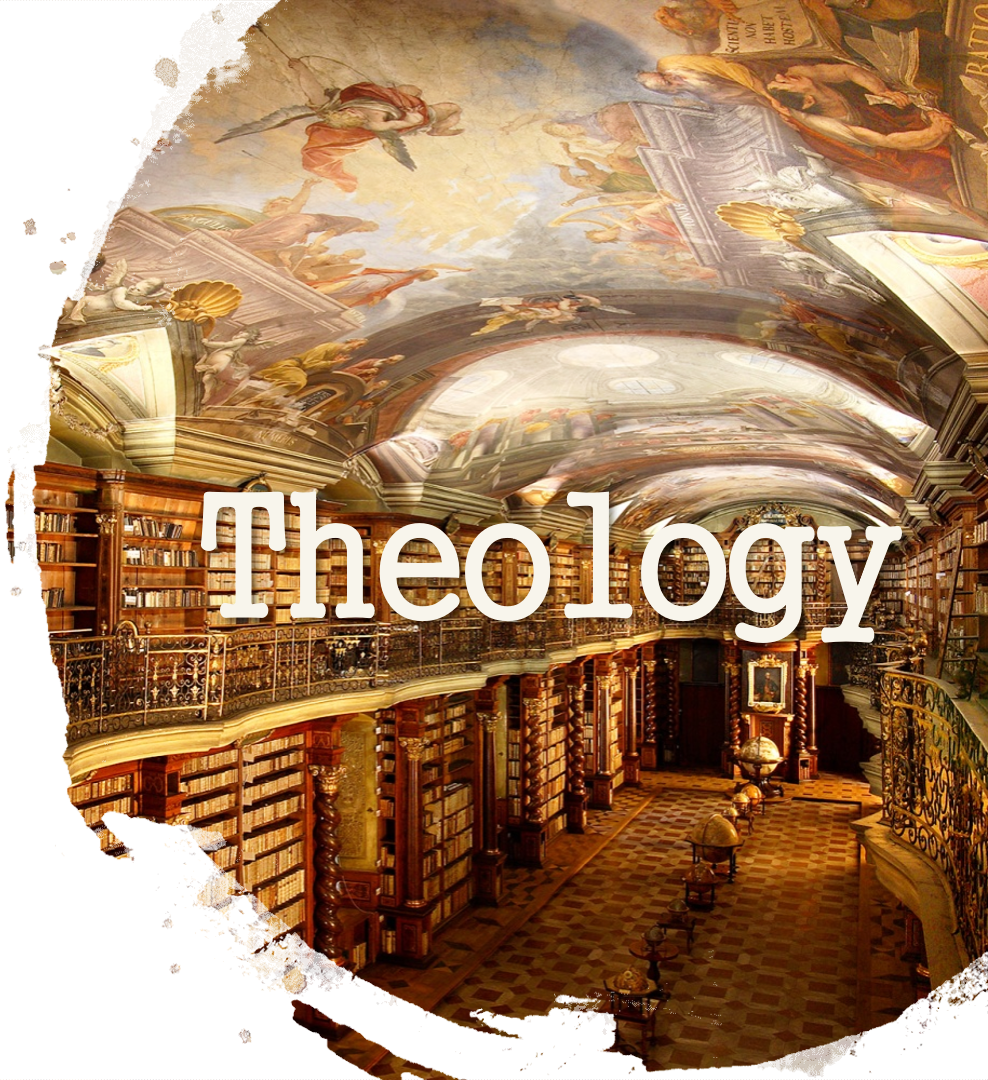
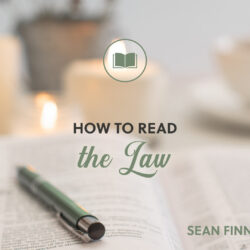

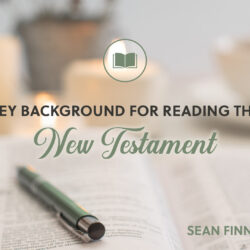

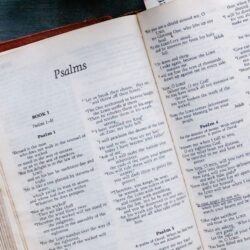
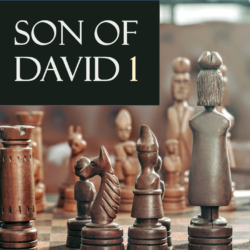
Great series on theology, Sean! I profited by every one of the episodes.
By the way, I liked your comment regarding last-minute registration for Converge in the “announcements” at the end of this episode: “Fear not, for there is grace and mercy … and a little bit of an upcharge.” 🙂
I really wish I could make it to the conference. But with three nieces and a son getting married this summer (not to each other!), vacation time is at a premium.
Thanks, and we need to pursue this topic.
So what LAW would you say Jesus kept?
Also, could you please define the difference between the Law of Moses and the Law of Messiah?
There is a Law of Moses and a Law of Messiah. Paul said of himself “I myself am not under the Law, but bound to the law of messiah.” (1Cor 9:20)
Paul was speaking after the ratification of the new covenant. During Jesus’ life the Torah or Law or Law or Moses or whatever you want to call it was still in effect. Jesus kept the Law, every last jot and tittle. He also lived by the principles of the new covenant. It’s entirely possible to do both–in fact, he had too since he was both fulfilling the old and introducing the new. I fear, this is where so many get hung up. They see Jesus keeping the Law and then think that if they follow Jesus they must also keep the Law. Sadly, to do this makes his sacrifice of no avail.
Galatians 5.2
Look: I, Paul, say to you that if you accept circumcision, Christ will be of no advantage to you.
However, denying that Jesus kept the Law also makes his sacrifice useless, because then he would be a sinner, which we know he wasn’t.
Hebrews 4.15
For we do not have a high priest who is unable to sympathize with our weaknesses, but one who in every respect has been tempted as we are, yet without sin.
Thanks for engaging this vital subject.
I think your solution needs a question like this: When “Jesus cleansed all foods” [Mar 7:19] and altered the law of divorce on one point [Mat 19:6], how can he be said to be keeping the Law of Moses?
He is not.
The key is that Jesus in his kingdom teachings is giving us the terms of the New Covenant [NC]. In a contract the terms, words of the covenant, have to appear before the ratification of them. Two stages, but it would be misleading to say that he is not giving the terms of the NC in his teachings.
If Jesus merely copied Moses, how is he the new and greater Moses?
I suggest that Jesus’ teachings are the terms and condition of the NC. He then ‘covenants the kingdom,’ as the Greek of Luke 22:29 says, when he is about to die.
Of necessity the terms of the covenant have to be spoken and written before the official ratification.
The mistake is to say that Jesus was NOT mediating the New covenant with his teachings.
The danger is to have no distinction between the Torah of Moses and the Torah of Messiah.
So could you please spell out that essential difference for us?
Anthony, you wrote, “When “Jesus cleansed all foods” [Mar 7:19] and altered the law of divorce on one point [Mat 19:6], how can he be said to be keeping the Law of Moses? He is not.”
Mark 7.19 is Mark’s editorial comment, which is in parenthesis in most modern versions. It is one of the few examples of Mark theologizing in the whole Gospel. Looking back on what Jesus said, he understands it to mean (presumably in light of all the other events that have occurred) that Jesus had already (perhaps prophetically) recognized the end of the food law system of Lev 11. This however, does not mean that Jesus ever ate pork or shrimp.
On divorce, Jesus’ commandment is indeed new. However, that does not mean he broke or encouraged others to break the Law. If someone obeys Jesus’ divorce rule and refuses to get divorced, that in no way breaks Moses’ command to give a certificate of divorce if one does divorce. It’s like Jesus said, “new wine in new wineskins.” He’s not doing the same old thing, he’s doing something new, but he can’t just defy the Law since it was still in force during his life.
My contention is that Jesus was doing both. He keeps the old covenant while also teaching about and living the new covenant as an example for us. I suggest this is why we have the Torah enthusiasts on one side arguing that we should all keep the Law as Christians and then we have the Andy-Stanley types on the other that say we need to do away with the Old Testament.
I agree that Jesus is superior to Moses (see podcast episode above), that the Torah of Moses and the Torah of Messiah are different, and that Jesus’ teachings are the terms of the new covenant.
My contention with you is that you are accusing Jesus of sinning and that has catastrophic consequences for atonement. If Jesus sinned, which we know he did not (Heb 4.15) then he cannot save. We both agree Jesus didn’t ratify the new covenant until he died, so we both agree Jesus lived under the old covenant right?
“He KEEPS the old covenant while also teaching about and LIVING the new covenant as an example for us.”
You cannot possibly be doing both covenants at the same time…..unless they’re the same.
Rictor,
You wrote, “You cannot possibly be doing both covenants at the same time…..unless they’re the same.”
Why can’t I love my enemies and not eat shrimp at the same time?
Sean,
First, you know full well that none of us “are accusing Jesus of sinning.” Sin is the transgression of law, and since Jesus was not under the laws of the old covenant, of course he wasn’t sinning.
What are you implying about the parenthesis in English translations of Mark 7:19?
On divorce, Jesus’ commandment is not just new. It sets aside and contradicts what Moses allowed.
Jesus keeping/living the old and new covenants at the same time is an impossibility.
We are thankfully agreed that the words of Jesus are the words of the New Covenant, i.e. the words of the Gospel of the Kingdom.
Anthony,
Please provide your reasoning for teaching that the Law ended before Christ was born. Or maybe, you are saying that the Law was still in effect for everyone but Christ? I have never heard of either of these ideas from anyone else. We know that Christ was “born under the law” (Gal 4.4). Thus, he must keep the Law. In fact, this why his parents circumcised him. As a baby, Jesus entered into the old covenant by blood and became bound to obey the Law. To violate the Law is to sin (by definition, see Romans).
On Mark 7.19, I’m implying (or stating rather) that Mark is looking back and adding an editorial comment. For example, the NET says, “This is a parenthetical note by the author.” The author is Mark, not Jesus. From his historical viewpoint (probably some 30ish years later) he sees Jesus’ earlier statement as a declaration about the end of food laws. Of course, this could not become reality until his death and resurrection and no one took it that way in the moment.
On divorce, following Jesus’ commands does not require disobedience to Moses. Moses never commanded divorce. He permitted it. The point wasn’t about the conditions for divorce, but for giving the woman a legal document to aid her in her future prospects. So, Jesus says not to divorce (except for sexual immorality). Following Jesus then does not require someone to disobey Moses. I hope this makes sense. I’m not saying the two are the same, but I am saying obeying Jesus doesn’t necessitate disobeying Moses. I hope you can see my pragmatic nuance here.
You wrote, “Jesus keeping/living the old and new covenants at the same time is an impossibility.” My answer: no it’s not as I’ve already demonstrated.
“Jesus kept the Law, every last jot and tittle. He also lived by the principles of the new covenant. It’s entirely possible to do both–in fact…” Sean
What about Mark 2:21-22?
Thanks for taking some time to address my question in the previous episode. I know it’s not an incontestable New Covenant text, but I still think it’s got some weight.
I don’t have much to offer, but if you’re willing to have me, I’d be happy to discuss the Levitical sacrificial system, atonement, and Hebrews from a non-supersessionist perspective sometime in the future.
Enjoy Converge!
Brian, I’ll take this under advisement. I’m hoping to find someone from a non-Torah point-of-view who would be willing to debate you on Restitutio. As of yet, no one has shown any interest. I fear this subject is not of great interest to many in the Restitutio community. It is not very controversial in most groups I’ve encountered.
Thanks for the response, Sean. No worries. We can discuss something like this next time we meet in person, perhaps in September when you’re in Atlanta.
Sean,
Because you cannot eat shrimp and not eat shrimp at the same time!
Rictor,
The new covenant does not require you to eat shrimp.
Sean,
Okay so what do you mean Jesus “KEEPS the old covenant while also teaching about and LIVING the new covenant as an example for us”?
That looks contradictory to me, especially in light of the two examples you brought up, I.e., enemy-love is a NC not OC requirement.
It’s like trying to defend a so-called Double Nature of Christ!
Rictor,
I’m sorry I’m not communicating this very well. I’m not sure what other words to use. Let me try again and let me know if this makes any sense. I don’t mind if you disagree with me, but if we don’t even understand each other, then that’s a problem.
One can do both covenants at the same time. Jesus is the hinge of history. He kept kosher, he was circumcised, he kept the sabbath, etc. He also lived out and taught the new covenant, such as for example, in the sermon on the mount. This teaching clearly goes beyond the old covenant, but by following it, one does not disobey or violate any old covenant commandments (mitzvot).
After his death for our sins, the new covenant came into effect. The priesthood was changed, all foods became clean, all days were sanctified, etc. From then on, the old covenant is no longer required for God’s people whether Jewish or Gentile.
Now if someone wants to keep old covenant laws, that is his or her choice. For example, it does not violate the new covenant to rest on Saturdays or to refuse to wear cotton-wool mixed garments. The problem comes in when Torah-observant Christians tell others they must keep the Law even though that is no longer the case.
Sean,
I appreciate your time and your communication skills are just fine. But let me try again as well:
You cannot keep “both covenants at the same time.”
Again, this is simply because by both example and teaching Jesus clearly is not within Torah when he says the food laws are ended (Mar 7:15), even though his own Apostles did not “get it” until much later, as you stated. He and his followers clearly “break the Sabbath and are innocent” in Mat 12:5 and John 5:16-18.
He refuses to stone the adulterer (John 8; cp. Samaritan woman in John 4). And he introduces “a new law: Love one another” (John 13:34). Which now includes enemy-love.
NOTE that he not only expects but demands his Apostles to obey this law in particular, even back then when he rebukes Peter.
So Tertullian was right to say, albeit a century later, “In disarming Peter, Christ disarms all Christians.”
These are just a few examples where following Jesus meant disobeying and violating “old covenant commandments (mitzvot).”
And yes, we all know and understand that the new Law of Christ was ratified, given the legal seal of approval if you will, by his blood at the cross. But the fact that you have Jesus by deed and word sometimes contradicting and definitely going “beyond the old covenant” (as you admitted) makes it impossible to see how you “can do both covenants at the same time.”
PS and of course we know that just because Jesus was born under Torah, circumcised etc., does not mean he was supposed to remain Torah-observant.
Just like Paul who says, in his rather stark analogy of Gal 4, that he was a slave, under bondage “under custodians,” i.e., the old covenant laws.
Jews were like “minors, children enslaved under elemental spirits/things” (stoicheia tou kousmou, which many scholars see as pagan, demonic principles of this present evil age!).
Hey Sean,
Good podcast–I really like how you try to push back and sit on the fence for a while against your own positions to better understand others. It is a rare skill, especially today.
I play a bit of the devil’s advocate as I can’t fully figure this out for sure myself. The reason why is because there’s an inconsistency in quoting Matthew 5:17-20 and ignoring the v.18 speaking about “heaven and earth” passing away. As I formerly held your position on the end-times, this caused a LOT of problems interpreting “heaven and earth” as the modern usage of the term or even the Genesis meaning. Heaven and earth is obviously still here in the modern meaning, so the Law is still fully in effect and those who teach against it and don’t keep it–are as Jesus said “least in the Kingdom.” The other legitimate meaning of understanding of “heaven and earth” can also come from covenant binding language referring to Israel itself. There’s numerous prophecies using this similar language in both the OT and NT(notably Hebrews where it’s all about the covenant change finality). Instead of me fully arguing it here(because it’s been a while since I’ve delved into it)–I’d recommend an article on it here: https://www.preteristarchive.com/Hyper/0000_preston_heaven-passed.html Whether you agree with Preston or not, he’s no fool when it comes to the Bible.
I think the question that also has to be asked is when you get to Hebrews, when it says “there is a change of law” the only contextual answer to this is regarding the priesthood/sacrifices. That’s a large part of the subject of Hebrews, agreed? So to extend this “change of the law” to multitudes of other things(like food laws) without direct textual support in Hebrews is a bit of a stretch.
The other issue with the understanding of Acts 15 that you hold is that the laws given to Gentiles are laws from the Torah. It makes no sense to say “No you don’t have to keep the Torah Gentiles, but here’s laws from the Torah.” And, two of the them are food laws. Most of us read these with a very modern set of eyes, but with the OT it’s a little bit more explained… not eating blood or strangled animals doesn’t necessarily mean taking a freshly dead animal and eating it or drinking blood. No, it has to do with properly slaughtering an animal to drain it of blood. So meat eating Gentiles were commanded to make sure their food was being slaughtered properly and properly drained of blood. I suspect from my former reading their temples weren’t doing it according to God’s Torah, so… that’s why they were given those commands.
Overall yeah, most of your podcast may not be interested in this, but it truly warrants tons more honest discussion. And no, admittedly I’m not someone to debate it–I’m working off former knowledge from studying stuff a year or two back(and that’s even slipping lol). Thanks for doing this though–this is welcomed discussion because so few will have it even in the B.U. camp.
Luke 16:16: “The Law and the Prophets were until John; since that time the Gospel of the Kingdom of God has been preached”
You proposed in this podcast that “until John” means “until Jesus finishes his work.” May I suggest that that opinion be revised as soon as possible.
Great episode for animal lovers like me: sheep going on holiday to the Caribbean; penguins outside the igloo; and young goats as payment to the daughter-in-law.
Hi Sean,
I would love to engage in a debate on this topic on the Pro-Torah side 🙂
-Luke
Hey Luke,
Thanks for volunteering. Now all we need is someone to debate the non-Law side. Any takers?
From my examination of the Scriptures and Church history I can see the following premises: Jewish Christians many anyways kept the rites of the Old Covenant in a “new light”. I can also see that the Gentile Christians were not required to become Jews, nor keep rites of the Old Covenant to be considered obedient to God and our Lord Jesus Christ. This is what we see in the early days of the Church fathers, Jerusalem had fallen and Antioch a major center of Christianity had taken the lead by necessity. We see nothing in the writings of Ignatius of Antioch, Justin Martyr etc telling Christians to become Jews nor required to keep OT rites like Sabbath, Holydays, Newmoons, Tithing etc. In fact Justin Martyr covered this whole subject in his Dialouge with Trypho the Jew.
Justin stated that there were Jewish Christians that kept these Old Covenant rites and that he believed they should have fellowship with them and it was ok, as long as they didn’t try to compel the Gentile Christians to observe these rites. Justin seems to echo Paul’s upbraiding Peter for his hypocrisy and saying “…why do you being a Jew seek to compel Gentiles to live like Jews?.” Seems to me the contention in Church history only happened with the Church and Jewish Christians when the Jews kept pressing to get Gentiles to live like Jews.
Well, Have a great day and thanks for the discussion.
I notice in my mind and from reading scripture, the wording in Jeremiah 31, which Jesus at the last supper echos for the coming age we are now in, that of the new creation in Him as head, the one new man neither Jew nor Gentile. That reading is God YHWH speaking through Jeremiah and saying “there will come a day where I will make “A” new covenant with my people.” The wording is not “The” New Covenant, which we always put capital letters on, but a warning that God will do a new thing, completing the use of “The Covenant” with Israel, and will bring about “a” new one. It is not imperative that this new covenant will be the final and last. Jesus seems to refer back to this long awaited covenant and in doing so uses the definite article as he is referring to something existant, written in the prophets. The definite article “the” does not therefore guarantee that this covenant will be the final replacement, a finality that always seems to be stressed in church covenant talk.
Now this awaited covenant MIGHT be what we currently live under as new birth believers, a covenant in Christs blood as a covering for sin, neither jew nor Greek believers, perhaps a parenthetical covenant, but might ALSO be referring to the replacement covenant with Israel again, which will be with all those who “go into the land” of the new Kingdom, under Jesus Messiah at the Parousia. A kind of “bigger deal.” Being “The Replacement” of the one broken.
So when we say The New Covenant we may be in danger of placing a mental limit for us on what God actually intends, that of a parenthetical covenant in Christs blood for this time when the new creation, new birth believer exists, but BEFORE a full replacement of THE Covenant with Israel at the Parousia! i.e. there might be multiple covenant agreements through the ages, the same ages as mentioned in Heb1:1-2.
It might be presumptuous of us by insisting the strength of this new covenant, to insist that we have already reached the final position of Gods dealing with man, especially in “this evil age” as implied in scripture and before Jacobs trouble begins! This presumptuousness is fostered by the trinitarian stance and the Greek notion of the kingdom of heaven, in heaven, reached at death, to be removed from this earth, and that all will be going on the same now that the “perfect has come,” which is christian religious tradition at its worst.
We Unitarians see through this tradition better I claim, seeing this current time as a stepping stone in the full plan of God to redeem and bless mankind and reach a point that man will be “all in all,” with the spiritual and God, and so we should be wary of claiming any final sounding covenant.
Whether it is a covenant for this time or a final replacement for the first, it is obvious to me from scripture that the original was broken, and was fulfilled in Jesus as the lamb, so is not to be adhered to in its letter by new birth believers, though used morally as a guide to living and relation can only be a blessing. Certainly no longer a requirement to adhere to.
As a parting shot perhaps, I also see where in these discussions about law, sabbath, etc where the ways of Israel are contrasted with those of the nations, Jews and gentiles, and who kept which custom in the church, that something quite obvious is missed.
That is that in the epistles Paul makes clear in a number of places that the Body, those in him, are called a new creation, neither Jew nor gentile, but “one new man.”
To me this is logical and echos the “new creation” of Colossians, the “new age” of Hebrews and the “renewing of the mind” from Galatians. It is the “mystery hid in God” from Ephesians, Corinthians and Romans.
In fact it is the heart of Pauls revelation contained in all the epistles. And as such shows us we are not beholding to foods, festivals, sabbaths or circumcision as Paul also tells us. It also shows us we are “bought with a priceless price” so owe our everything (not a tenth) so does away with tithing in the church!!
All the christians I point this out to since my unitarian awakening five years ago, just stick their heads in the sand and continue as before. Ken is a heretic they say to each other while offering me that sickly church smile and a chuckle, like they see a private joke.
Is this why the church is fragmented and semi powerless and endlessly debate fine points, missing this issue, which I see as pretty obvious??